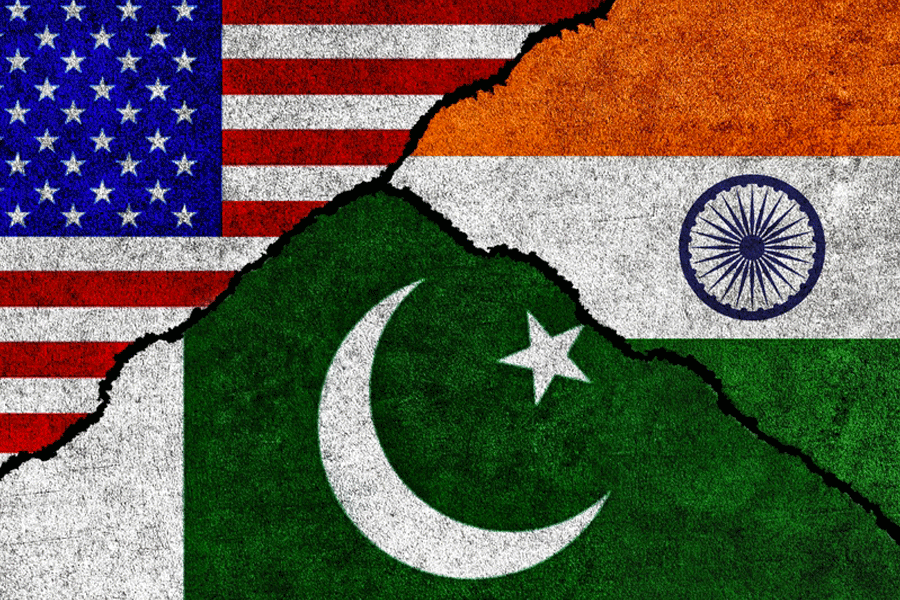Barely a week passes without the president of the United States of America, Donald Trump, resurrecting his claim that he brokered peace between India and Pakistan after
their brief but intense four-day conflict in May. In Trump’s telling, that crisis was escalating when he stepped in and threatened India and Pakistan that he would stop trade with them unless they stopped fighting. And lo and behold, they agreed to a ceasefire.
India, of course, has repeatedly and publicly rejected that narrative, with Prime Minister Narendra Modi even telling Trump directly on the phone that his claims were false. But what India cannot deny, though, is a sobering reality: seven months after Trump took office for a second time, the US president has rolled back two decades of gains by New Delhi in getting Washington to treat their ties on their own merit. Instead, the India-Pakistan hyphenation is back.
India has long opposed to being treated on a par with Pakistan. New Delhi’s argument? India is one of the world’s largest and fastest-growing economies, Pakistan a debt-strapped nation; India is a giant democracy, Pakistan a country where an unelected military is the pre-eminent force; India is a victim of terrorism, Pakistan a perpetrator.
As US frustrations with Pakistan’s duplicity on extremism — supporting Washington officially in the so-called War on Terror while actually sheltering the Taliban — grew, and India’s usefulness as a counterweight to China in the Indo-Pacific became more apparent, American administrations did de-hyphenate the South Asian neighbours. India was lauded as a vital partner, the relationship celebrated as one of the
most important for the US, while Pakistan was pilloried for its failure to crack
down on terrorism. US presidents broke with their longstanding practice of visiting India and Pakistan when they travelled to the region — Barack Obama (twice), Trump and Joe Biden have all come to India but skipped Pakistan. Ties with New Delhi were routinely upgraded and the US facilitated India’s entry into global clubs like the Nuclear Suppliers Group. Relations with Pakistan, meanwhile, stagnated.
All of that has changed in recent months. The US military under Trump first thanked its Pakistani counterpart for anti-terror cooperation. During the May conflict, Trump studiously refused to blame Pakistan and, instead, pitched the crisis as a fight between two hot-headed teenagers who needed to be pulled apart. India believed that Pakistan was responsible for the Pahalgam terror attack that sparked the fighting. But the US refused to draw that distinction between the neighbours.
Trump hosted Pakistan’s army chief, Asim Munir, for an unprecedented White House meeting and then tried to invite Modi to Washington at the same time — potentially to get them face to face. Modi and India smartly refused. While Trump hit Pakistan with 19% tariffs on its exports to the US, he has imposed a 50% tariff on Indian goods, half of which is for Indian purchases of Russian oil. Most recently, Trump has announced his nominee for ambassador to India: Sergio Gor, a long-time aide with little known experience or understanding of India. Gor will carry the additional charge of the president’s special envoy on South and Central Asian affairs. In effect, that means that Gor, if his appointments are confirmed, will also oversee US relations with Pakistan and other South Asian nations and won’t just be an advocate for stronger India-US relations.
What is most striking is not just what Trump is doing but how he is doing it: publicly, in a way meant to humiliate the Indian strategic Establishment. That makes it harder to return to a place of trust.
For India, a hyphen isn’t just a punctuation mark. And if Trump continues down this path, perhaps New Delhi needs to rethink its grammar too.
Charu Sudan Kasturi is a journalist who writes on foreign policy and international relations











